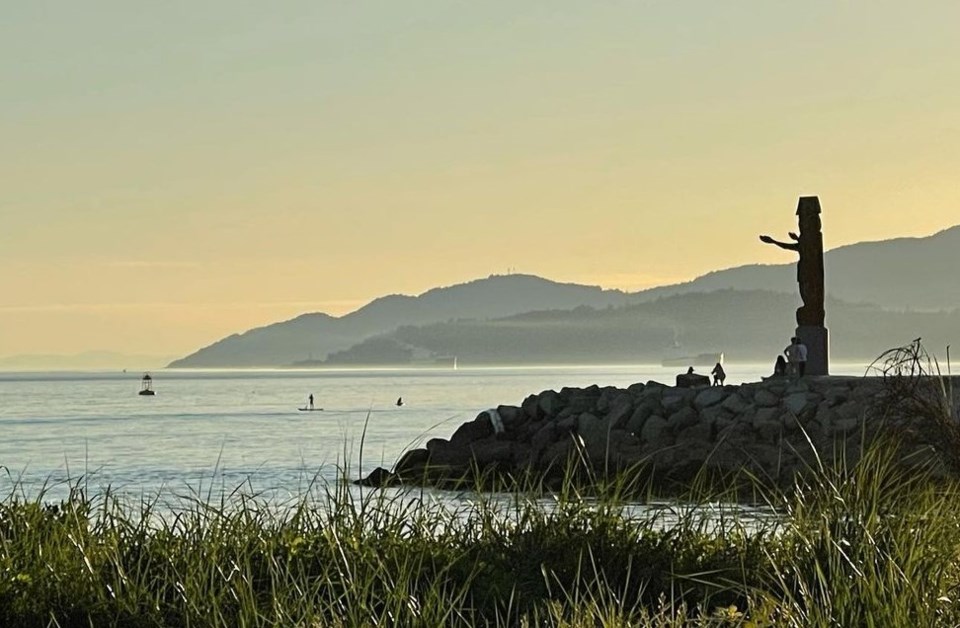Sḵwx̱wú7mesh Úxwumixw (Squamish Nation) and Tsleil-Waututh Nation leadership both say they have been disrespected by West Vancouver council’s decision to no longer start meetings with a spoken Indigenous land acknowledgment.
In a reversal of current trends, Mayor Mark Sager said at the outset of the Nov. 14 meeting that, going forward, the statement recognizing the Squamish, Tsleil-Waututh and Musqueam nations would be printed on future agendas and not read out.
The decision was made without any consultation with the nations recognized in the statement.
“It’s disheartening to say the least. Stunning as well,” said Wilson Williams (Sxwíxwtn), elected councillor spokesman for the Squamish Nation. “It was challenging to hear, personally, but collectively, as leadership, most everyone was upset.”
Spoken land acknowledgments are a custom in Coast Salish cultures, Williams said, and having them continued is an important step in reconciliation.
“We’re oral peoples. We come from an oral tradition. That’s a big part of our culture and who we are. To have someone reference that ‘We have it in writing’ is, to us, very disrespectful.”
Tsleil-Waututh Chief Jen Thomas said she too found the decision shocking and disturbing at a time when they’ve been attempting to build new relationships with other governments in a process of reconciliation.
“It shows that we are being acknowledged and not forgotten.… We’ve been behind the scenes. We’ve been left out of tables. It’s big in my eyes,” she said. “Having somebody else in the outside world acknowledge and share those stories is a big part of the reconciliation.”
In an interview, Sager emphasized that it was his decision to swap the spoken statement with a written one at the top of the agenda and it was not intended to be an insult.
“When you repeat the same thing, time and time and time again, people glaze over it and it actually does the opposite of what you want it to do,” he said. “We’re also a council that values time. I expect people when they come to our meetings, they will read the agenda. And we’re there to vote on items.”
Sager said when they do meet, he is going to pitch the nations on a plan to build a new longhouse or museum for the local First Nations to share their culture in, on the district-owned Klee Wyck property.
“We are, in our council, certainly not wanting in any way to be disrespectful to our First Nations, friends and neighbours. In fact, we want to do meaningful things,” he said.
Other municipal councils in Metro Vancouver don’t do acknowledgments at all, Sager added. The City of North Vancouver has been doing them since 2021. The District of North Vancouver started at the end of the last council term.
When they do eventually meet in their official capacities, Wilson said he expects the land acknowledgment will be raised along with an opportunity to teach West Vancouver council members about territory they conduct their business on.
“I’m hoping to move forward in a good way and build upon our relationship but at the same time, you know, part of reconciliation is about education,” he said.
Interestingly, West Vancouver municipal hall is situated on a former hunting trail used by his ancestors, Williams said. And Williams noted the irony of the slight, given the carved Squamish welcome figure that stands on Ambleside Beach with its arms outstretched.
“That’s a symbol that we’re welcoming you here to the territory,” he said.
Thomas expressed a similar sentiment about a desire to rebuild the relationship.
“I’m hoping their city council will reach out to us and have a sit down and be able to make steps forward again. This was a step backwards,” she said. “Reconciliation is a journey together. We have to find paths moving forward together. We’re stronger together.”
The Indigenous land acknowledgment that started each meeting and will now be printed on the agenda states:
“We acknowledge that we’re holding this meeting on the traditional ancestral and unceded territory of the Sḵwx̱wú7mesh Úxwumixw (Squamish Nation), the Tsleil-Waututh Nation and the Musqueam Nation. We recognize and respect them as nations in this territory, as well as their historic connection to the lands and waters around us since time immemorial.”
On Friday, the Squamish Nation council sent a strongly worded letter to West Vancouver council expressing their dismay and calling for an in-person meeting.



